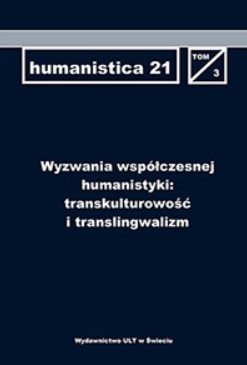Транскоммуникативный подход в преподавании ономасиологии в высшей школе
Transcommunicative approach in the ching onomasiology in higher education school
Author(s): Gulmira SuleimenovaSubject(s): Theoretical Linguistics, Sociolinguistics, Higher Education
Published by: Wydawnictwo ULT w Świeciu
Keywords: transcommunicative; transcommunicative approach; onomasiology; higher education; training;
Summary/Abstract: At first the article was done of analytical review of research in onomasiology, also in anthroponymy; defined the place of intercultural continuity, the culture and language research of Kazakh anthroponyms, the history of the origin of anthroponyms; was given the questions to cosider the onomastics, names of lands, rivers and lakes, names of settlements, people’s names as an integral part of the language; great opportunities to obtain information about the past and present of the nation through the knowledge of these elements; formation the traditions which connected the process of nominating a person and the environment, which found display of the life, and customs and way of people life, people, and the expressiveness of language and its word formation; the close relationship of anthroponymic units, personalities in the Kazakh language with people’s life, ethnic group and their etymology, the development, ways of formation, an especial education through analysis. At the second in spite of the personal names and anthroponyms which given as human name, and considering needness meaning, the secrets personal names and their reasons, for nomination, the realization that for the owner of the name these words of the native language or those from other languages are words of the same language; necessity to understand the living system of nomination, the formation of the tradition of nomination, their relationship with international relations, socio-political formation; decision of great problem of onomasiology through the teaching of future specialists in onopopulation knowledge in higher education not only to learn and understand oneself, but also the opportunity to inculcate respect for traditions-customs, the native language of the younger generation.
Journal: humanistica 21
- Issue Year: 3/2019
- Issue No: 3
- Page Range: 357-376
- Page Count: 20
- Language: Russian

